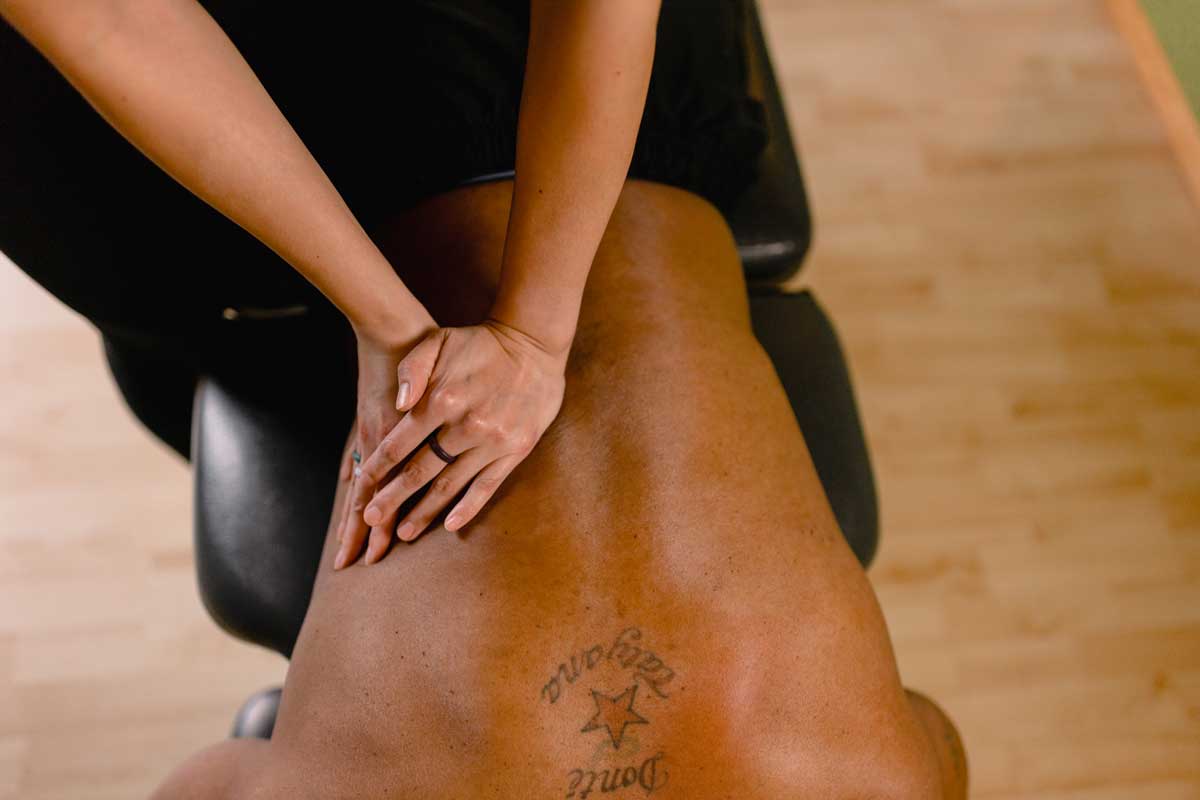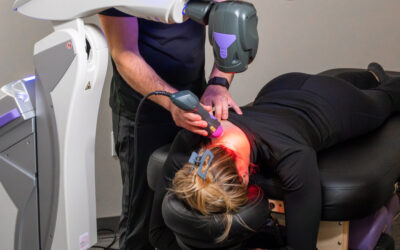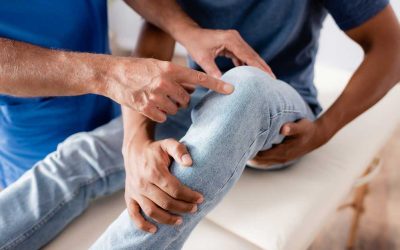Herniated discs are a very common problem, with over 3 million cases reported per year¹. While not every case requires treatment, some situations can be severe enough that doctors will recommend surgery.
This isn’t the only option, however. Get the facts to help you make the best decision about a herniated disc.

Today you will learn:
• Where herniated discs occur
• What is a herniated disc
• What a herniated disc feels like
• The signs and symptoms of a herniated disc
• How to know if you have a herniated disc
• And treatments for herniated discs
Here we go…
Where do Herniated Discs Occur?
A herniated disc happens in the spine.
Most herniated discs impact the lower back (lumbar) or neck (cervical), however, they can happen anywhere along the spine.
The other names for herniated discs include:
• bulged disc
• slipped disc
• ruptured disc
• prolapsed disc
What is a Herniated Disc?
The spine is formed by a series of bones, called vertebrae, and between them, cushioning the bones are discs. The tough outer layer of the disc surrounds a softer nucleus, and these pillow-like discs protect the vertebrae from damage.
With aging or injury, the tough outer layer of the disc can weaken, allowing the soft nucleus center to slide out of place. When this happens, it usually pushes against a spinal nerve, causing painful symptoms. This is the condition known as a herniated disc.
What does a Herniated Disc Feel Like?
Some people with a herniated or slipped disc may not feel any symptoms at all. Other times, patients experience pain, numbness, or weakness near the bulged disc. The location of the slipped disc will typically direct where the pain will radiate symptoms.
Symptoms occur because the herniated disc often irritates the nearby spinal nerves. Solving this problem will resolve the pain or other troublesome symptoms.
When you experience these symptoms, it is important to seek professional attention.
Emergency medical attention is important if:
• Symptoms become increasingly painful or problematic
• Symptoms change suddenly or escalate
• Symptoms include new incontinence or bowel dysfunction
Symptoms of a Herniated Disc
Because some herniated discs cause no symptoms, a person may only know they have one based on a spinal x-ray or testing.
Those who report symptoms often experience:
Pain
Sharp or burning pain is the most commonly reported symptom of a herniated disc. This makes sense because we know the pain is coming from nerve irritation. When the bulged disc is in the low back, also called a lumbar herniated disc, you may be experiencing pain down your leg or even into your foot.
When the slipped disc is in your neck, also called a cervical herniated disc, your arm and shoulder will likely feel pain. This pain can be aggravated with sneezing or coughing or from moving from or into certain body positions.
Numbness
Numbness from a herniated disc usually only impacts one side of the body where the nerve is pressed. This is often described as tingling or radiating numbness from the area where the disc has shifted.
Weakness in an arm or leg
When a nerve is impacted, it tends to weaken the muscles that serve and support the area. This can result in muscle weakness. Often patients report weakness that causes them to drop items they were holding or cause them to stumble when walking.
The sciatic nerve is one of the largest nerves to come from the lower part of your spine. When a herniated disc happens in the lumbar area, it is very common that this nerve is impacted, causing pain that can radiate into the glutes, thigh, hip, knee, calf, and foot.
What Causes a Herniated Disc
There are three leading causes of a slipped or herniated disc:
• Age
• Activity
• Genetics
• Risk factors
Age – Age-related disk degeneration is the main cause of a herniated disc. Weakened ligaments from aging can make a simple twist or strenuous movement cause a disc to slip.
Activity – Improper lifting or accidents can also be responsible for herniated discs. Strain or pressure on the weak disc can cause the firm outer portion of the disc to tear, resulting in a slipped disc.
Genetics – There is evidence that genetics can play a part in the occurrence of slipped discs. Family history of ruptured discs can be an increased risk factor for patients.
Risk factors – Beyond family history, there are additional risk factors, including smoking, excess body weight, and those involved in repetitive motion occupations or sports.
 How to Fix a Herniated Disc
How to Fix a Herniated Disc
Thankfully, surgery is usually unnecessary to relieve a herniated disc but is an option in extreme cases.
Less invasive measures include:
Choose a Healthy Lifestyle
Quitting smoking, following an exercise program, and reducing weight are recommended for all health conditions, including herniated discs.
Chiropractic Care
Chiropractic care can reduce pain and relieve pressure from the slipped disc on any impacted nerves. Increasing blood flow and aligning the spinal vertebrae help reduce pain, numbness, tingling, and weakness associated with the herniated disc.
Unlike other strategies, chiropractic care can support the underlying condition, creating long-lasting results. Some of the methods our office uses include instrument-assisted, soft tissue mobilization, Active Release Technique, homework with specific stretches and strengthening exercises, and rehabilitation solutions.
Consider Functional Rehabilitation Therapy
Functional rehabilitation therapy and gentle movements, such as stretching, can help relieve pressure on the nerves causing you pain. However, this may only be temporary relief.
The Takeaway
Suffering from a herniated disc and want relief? Our teams of chiropractors in Green Lake, and West Seattle, and Slabtown Portland are here to help you discover the underlying causes of your pain and treat them with safe, reliable solutions custom formatted for your concerns. Remember, herniated discs can take time to heal, but chiropractic care will help reduce the pain naturally and effectively without evasive procedures or drugs.
Contact us today to book an appointment and start feeling better faster.
Reference:
- https://www.disability-benefits-help.org/how-disabling-is-my-condition/herniated-disc


